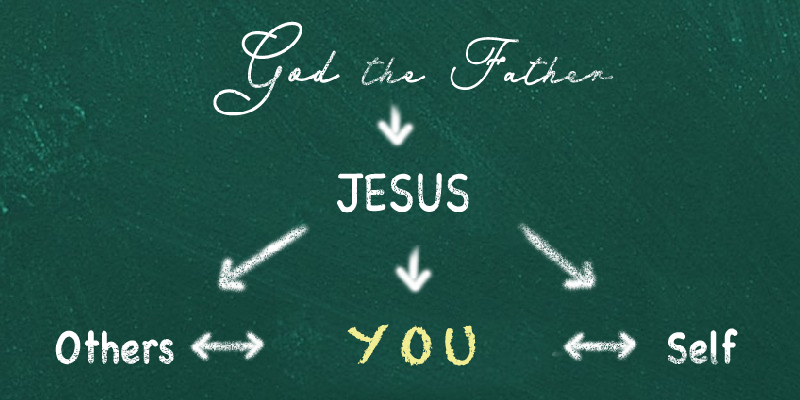Using II Corinthians 5:19
For Forgiving Others
Child of God Counseling* II Corinthians 5:19
When a person has trouble forgiving someone else.
The exercise below is most beneficial when working with a Christian therapist who specializes in your particular issues. In considering this exercise you will also be helped by talking to your pastor or to a Christian friend who can keep confidences.
At the end of this page you may “find a therapist” to help you based on your needs.
Interactive excersize

List what roles you play in life.
(son, daughter, mother, father, job title, addict, victim, etc.)
Now, list who you are. No, really, who are you?
(List as many things as you can think of. Cross off items as another item takes on a fuller meaning of the true you.)
II Corinthians 5:19 is very helpful for you to see how God looks at you.
“…that God was reconciling the world to himself in Christ, not counting people’s sins against them. And he has committed to us the message of reconciliation.”
Now let’s chart this passage out so we can see it visually:
According to God’s words in II Corinthians 5:19:
- Who is doing the work in this passage?
- Through whom is he doing it?
- What is he doing?
- For how many people is he doing it?
- Is anyone left out?
- What does that mean about you?
- If you are not left out, then God sent his Son to pay for your sin of….
- Is that what God says?
- Do you believe in Jesus as your Savior from your sin of…?
- What does that mean for you that you are a child of God, a believer in Jesus Christ?
- In which of your roles are things going badly?
- As you think about this role in which things are going badly, what does it mean to you that God says that you are his child?
- Notice that II Corinthians 5:19 talks about God reconciling “the world unto Himself, not counting people’s sins against them.” That is represented on the chart by the words, “Others,” “You,” and “Self.”
- What does this say about God and the person who sinned against you?
- Since Jesus died for the sins of the person who sinned against you, what does that say about his or her relationship to God earned by Christ?
- How does this fact of God’s loving work of reconciliation done even for the person who sinned against you help you to forgive that person?
- But notice that there is an arrow from “Others” to “You” on the chart. It is pointing both ways.
- Let’s go back to the vertical arrows from God through Christ to “You” and to “Others.” How perfect is this work of reconciliation by God to “You” and the “Others?”
- How fast is this vertical work of reconciliation? It has actually already been done through Christ, hasn’t it?
- We are going to call the horizontal line and the arrow that points both ways at the bottom of the chart from “You” to “Others” a process. It is not perfect and instantaneous and already done like the reconciliation worked by God for the world. Why not?
- God has reconciled “You” to Himself and He has reconciled the “Others” to Himself. But God is perfect. The one who sinned against you and you, yourself, are not perfect. You are both sinners. You both live in an imperfect world. So it is a process. A process of forgiveness. Reconciliation is a process between you and another human being. With this understanding of God’s Word, (II Corinthians 5:19), how are you helped to begin and work through the process of forgiving someone who sinned against you?
- You are both sinners. You are both reconciled to God by the blood of His Son, Jesus.
* Loosely based on the work of Dr. Brian Terrell. Revised by Alan H. Siggelkow
The above exercise has greater benefit when working with a Christian therapist, your pastor, or a fellow Christian. Interaction and accountability with another person who can provide understanding and encouragement is reinforced in therapy sessions.

